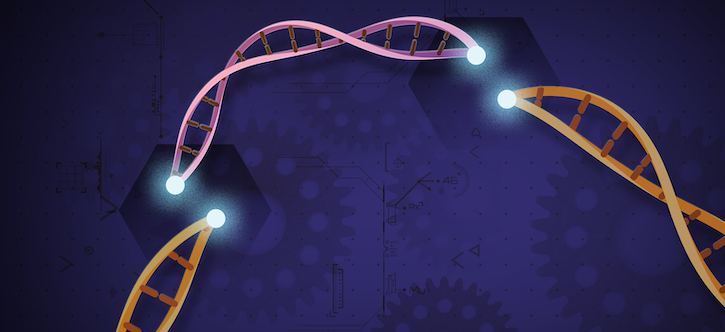Bipartisan Resolution Urges Creation of International Gene-Editing Standards
While gene-editing technology can lead to new therapies, the use of CRISPR has raised ethical concerns.

Photo/Thumb have been modified. Credit: Ernesto del Aguila III, National Human Genome Research Institute, NIH, via flickr.
It’s no secret that gene editing has sparked ethical concerns. In March, scientists and ethicists from seven countries issued a strict global moratorium on heritable genome editing in sperm, eggs and embryos. And this week, Sens. Dianne Feinstein, Marco Rubio and Jack Reed introduced a bipartisan resolution urging for the creation of international ethical standards for gene-editing research.
“There has been global outcry in response to unethical gene-editing experiments, and scientists have warned of the potential long-term consequences that could impact generations,” said Rubio, a Republican from Florida. “As we move forward, it’s vital that the U.S. lead the way in creating ethical standards for gene-editing research.”
The news of the resolution follows reports from last November of Chinese researchers claiming to have used CRISPR gene-editing technology to help a couple give birth to genetically modified twin girls. While this news raised many eyebrows, it did not stop a Russian scientist from saying this past June that he was planning to produce gene-edited babies in HIV-positive women.
The resolution states that the Senate opposes the actions done by the Chinese scientist, He Jianku, and recognizes that the question of whether to proceed with heritable genome editing touches all of humanity.
The Senate supports the development of an international framework regarding human germline editing by the National Academy of Medicine, the National Academy of Sciences and the Royal Society of the U.K., the resolution notes. It also encourages the secretary of state to work nationally and internationally with organizations to create consensus regarding the limits of ethical clinical use of genome-edited human embryos.
While gene editing could lead to new therapies for devastating and untreatable diseases, Feinstein, a Democrat from California said that, “like any new technology, there is potential for misuse.”
“The timing is key,” said Marcy Darnovsky, Ph.D., executive director at the Center for Genetics and Society. “…We are at a tipping point with this issue, which is why this resolution is so important now.”
Get the best insights in digital health directly to your inbox.
Related
ssDNA Service Launched for CRISPR-Based Gene Editing
Forensic Genealogy Is Neat. Is It Ethical, Though?
Lost in the CRISPR Hype, a Gene-Editing Giant Is Fighting Back